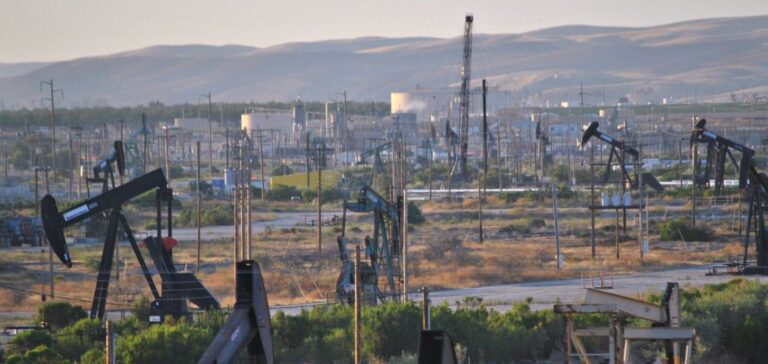The European oil industry is reassessing its priorities. After setting ambitious targets for energy transition, several companies are now scaling back their renewable energy commitments. This shift is driven by perceived lower returns and increasing pressure from investors seeking higher stock market valuations.
Diverging Projections on Oil Demand
While the International Energy Agency (IEA) predicts a peak in global oil demand by the end of the decade, other forecasts suggest this turning point is still far off. Vitol, a leading independent trader, does not foresee a decline before 2040, whereas TotalEnergies estimates the threshold between 2030 and 2035. Meanwhile, the Organization of the Petroleum Exporting Countries (OPEC) expects demand to continue growing at least until 2050.
Amid this uncertainty, major oil companies are adjusting their strategies. They argue that the development of renewable energy remains insufficient to compensate for hydrocarbon demand, especially in emerging markets where energy consumption continues to rise.
European Majors Backtrack
Some European companies, once at the forefront of the energy transition, are now scaling back their ambitions. Enel has reduced its renewable energy budget by €5 billion for the 2024-2026 period. BP, which had committed to cutting hydrocarbon production by 25% by 2030, is under investor pressure to revise this target downward. In December 2024, the British group announced a significant reduction in its offshore wind investments, opting instead to form a joint venture with Japanese company Jera.
Shell is adopting a similar approach. The company confirmed in December that it would no longer develop new offshore wind projects, arguing that it lacks a competitive advantage in this segment. Instead, management is focusing on historically more profitable activities, particularly liquefied natural gas (LNG).
TotalEnergies Maintains a Hybrid Approach
In contrast to this trend, TotalEnergies is sticking to its renewable energy targets. The company aims to reach 100 gigawatts (GW) of renewable electricity capacity by 2030 and allocate one-third of its investments to so-called “low-carbon energy.” However, this category also includes hybrid segments such as biofuels, biogas, and gas-fired power plants, indicating a more gradual than disruptive approach.
Furthermore, TotalEnergies has no plans to reduce its oil and gas production. In October 2024, the company raised its growth forecasts for these sectors, projecting an annual increase of 3% until 2030, with a particular focus on natural gas.
American and National Oil Majors in Observation Mode
While American oil giants such as ExxonMobil and Chevron have set emission reduction targets, they remain primarily focused on hydrocarbon production. Unlike their European counterparts, they have made minimal investments in renewable electricity.
National oil companies (NOCs), which control more than 50% of global production, also play a crucial role. Some, including Aramco, Adnoc, and PetroChina, have announced long-term climate goals, aiming for carbon neutrality in their operations between 2045 and 2050. However, these commitments remain limited compared to Western majors, which are subject to stricter transparency requirements.
The strategic realignment of European companies highlights a trade-off between immediate profitability and energy transition. As projections on global oil demand continue to diverge, the market’s evolution will dictate further adjustments by major players in the sector.






















